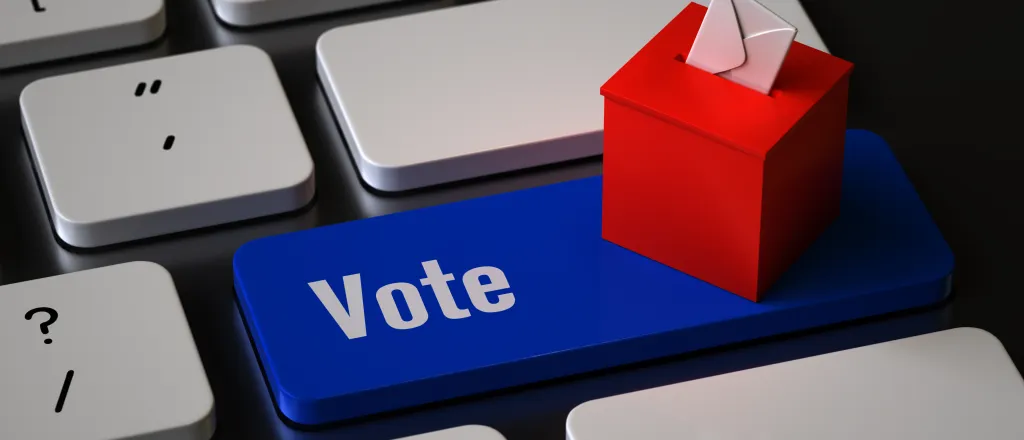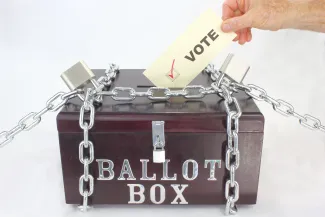
Nevada considers expanding internet voting, election expert says 'bad idea'
Click play to listen to this article.
Nevadans do a lot online, from paying bills to shopping and even voting.
Senate Bill 74, which would require the Secretary of State to allow registered voters who cannot physically get to the polls or access a mail ballot to use an approved electronic transmission system to cast their ballot, has made it out of committee and is advancing within the state legislature.
Nevada already allows overseas voters, those with disabilities and tribal members to cast ballots electronically, which helps expand ballot access to rural voters.

C. Jay Coles, deputy director of legislative affairs for the nonprofit Verified Voting, contended expanding Nevada's Effective Absentee System for Elections is a "high risk activity." He argued when it comes to election administration, officials must balance security and accessibility.
"In this particular instance with internet voting or electronic ballot return, the security risk outweighs the accessibility benefit," Coles contended. "The balance isn't there, the scales are not balanced."
Proponents of the measure countered the legislation would increase ballot accessibility and ease the process by which a ballot is returned. Coles called the measure a "noble" attempt but suggested Nevada look to other alternatives like sending voters blank ballots electronically, have them mark their selections using an electronic device but then requiring them to print and return it by mail or in-person.
Federal agencies have expressed concern and believe electronic ballot return technologies are high-risk even with controls in place.
Coles acknowledged while some states have already implemented similar processes for certain voters, expanding them could pose serious consequences.
"At some point in the future when there are enough ballots connected to the internet, where then our adversaries could access that system, or systems, and make those changes to alter the outcome of an entire election, that is the worst case scenario," Coles emphasized.
Coles asked lawmakers to consider the unintended consequences of expanding Nevada's electronic ballot return system.
"Six months after an election, we learn that the 'EASE' system was hacked and that the declared winner of the election, in fact is not the winner of the election and the wrong person was seated. What do we do?" Coles questioned. "There are no laws to address that."
















